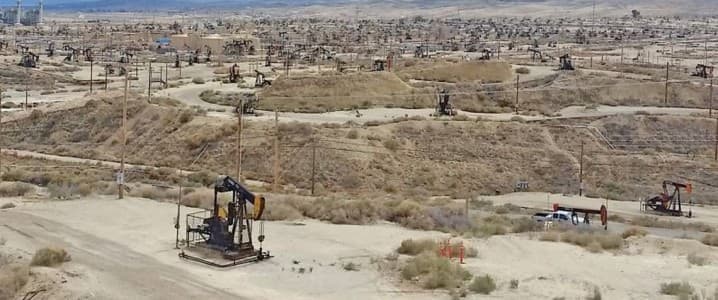The IEA’s Latest Proposal Is Both Reckless And Impossible

The International Energy Agency, which has stepped up its efforts to become a major green energy supporter, appears to have forgotten the reason it was set up as an agency in the first place. In its new report “Net Zero in 2050”, the energy agency calls for no new investments in oil- and gas-related projects.
As stated by Fatih Birol, the IEA’s executive director, “new energy security challenges will emerge on the way to net zero by 2050 while longstanding ones will remain, even as the role of oil and gas diminishes”. The IEA also stated that the contraction of oil and natural gas production will have far-reaching implications for all the countries and companies that produce these fuels. In a very remarkable statement, Birol said that “no new oil and natural gas fields are needed in the net zero pathway”. While he admits that, within that pathway, oil and gas supplies (aka production) will become increasingly concentrated in a small number of low-cost producers. Based on its own assessments, the IEA predicts that OPEC’s share of a much-reduced global oil supply will increase from 37% at present to 52% in 2050, a level higher than at any point in the history of oil markets.
While the IEA’s new report focuses on the need to drastically reduce our use of fossil fuels in order to reduce CO2 and methane emission, there are some major underlying issues it fails to address. In its determination to reach Net Zero emissions by 2050, the IEA appears to have engaged in wishful thinking, ignoring the existing constraints and immense investments needed to achieve such a goal. In its report, the agency does admit that there are severe risks on the way to Net Zero, including geopolitical and economic risks related to an overdependency on critical minerals.
The fact that the main risks are not only geopolitical but also commercial appears to have been ignored. At present, demand for critical materials and minerals is already putting immense pressure on markets, suppliers, and overall costs. If you extrapolate this demand growth under the IEA’s net zero pathway, markets will not be able to keep up with supply, and risk levels will increase exponentially.
The main criticism that should be leveled at this new report is its statement that no new investments are needed in upstream oil and gas worldwide. That statement not only runs entirely contrary to the main reason that the IEA was founded, namely to promote secure and affordable energy supplies to foster economic growth, but it also seems to forget the pivotal role hydrocarbons, mainly oil and gas, play in the global economy. By understanding oil and gas as simply energy products, the IEA appears to overlook the downstream products that are produced by the same sector.
By shaping an environment in which the call to divest or not invest in oil and gas is central, several key markets including chemicals, semi-products, and fertilizers, are going to suffer. Another factor to consider is the pivotal role that international oil majors (IOCs) and independents play in the global market. To focus all efforts on removing one part of the global market is to threaten the stability of both energy and economic security. For decades the symbiosis between IOCs and NOCs has been a key pillar of stability in energy security, as both have different strategies and production approaches. By removing available financing for IOCs via divestment, the market power will be given to the national oil companies or government-led entities, which will also give them significant influence in global markets.
Currently, most oil and gas reserves are in the hands of national governments, which can be demonstrated by the power of OPEC+. International oil companies currently have the right (concession) to produce and explore for oil/gas within these. At the same time, most production reserves (P1/+P3) of IOCs are already at critical levels, with most IOCs holding reserves for 5-6 years of full production. By removing access to capital or even their license to operate, IOCs will not be able to survive in their current business models. That may be seen by some as a desirable outcome, but economically and geopolitically it could be a disaster. Without independents, all power will fall into the hands of national producers.
Some already consider OPEC+ to be a cartel, and if you remove IOCs from the equation, it truly would have the power of one. A fully renewable, sustainable, and stable world before 2050 is not something that can be achieved without oil and gas for both petrochemicals and energy. The IEA’s member countries may be able to cough up the cost of this aggressive green strategy without imploding their own economic wealth, but non-OECD countries will not be able or willing to. Oil and gas will be needed for economic growth, transport, and mobility. In short, the approach suggested by the IEA is not only impossible but also reckless.




